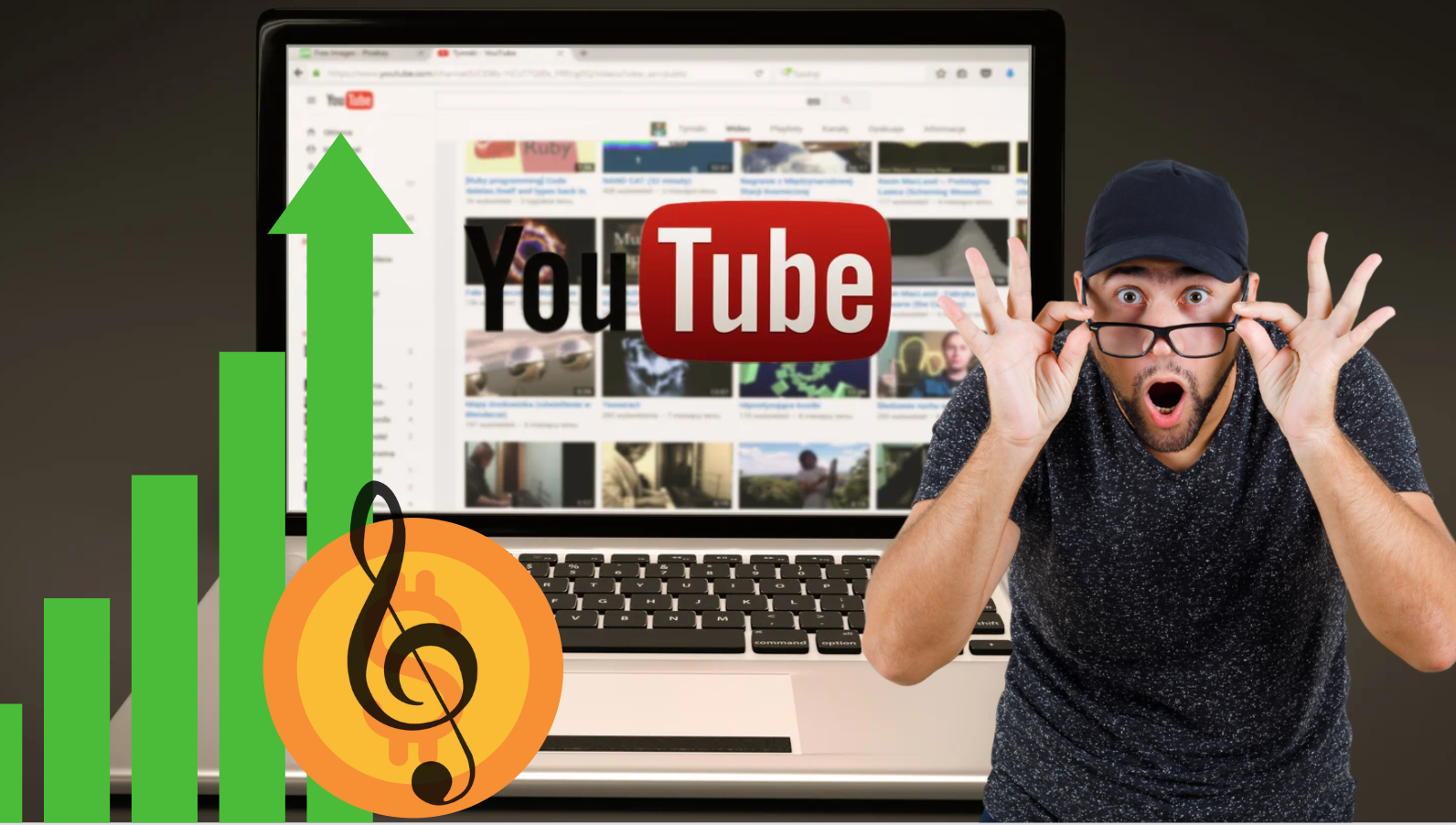YouTube Creator Music Explained: Everything You Should Know
The article is a list of frequently asked questions about YouTube Creator Music, concerning the most to creator community.
About the Author
American entrepreneur, co-founder and Co-CEO of Slip.stream. He is the former co-founder and COO of Jingle Punks Music. He has been featured in Billboard, Variety, and Business Week
In early 2023, YouTube launched Creator Music, a library of high-quality tracks that can be used by creators to monetize their content on the platform. YouTube Creator Music offers two types of tracks: licensable tracks and revenue share tracks. Licensable tracks require an upfront license fee and allow creators to enjoy full monetization. Revenue share tracks, on the other hand, enable creators to share ad revenue with YouTube.
Although Creator Music is still in beta, the ultimate goal is to make it available to all YouTube creators.
Whether or not you currently have access to Creator Music, it's important to keep certain things in mind before using tracks from it. To help you out, we've compiled a list of some of the most commonly asked questions from the creator community. Let's dive in!
Jump to question
If I purchase licenses for music tracks to use in my videos, is that once and for all?
Is the availability of a track for revenue share perpetual?
How much money will I receive if I use the revenue-sharing tracks?
Can I use Creator Music for YouTube Shorts or live streaming?
Can I do revenue share with licensable tracks?
Should I license a track or do revenue share with the license holders?
If I purchase the license, can I use the music in multiple videos?
Can I use the music from Creator Music on my promotion videos?
If I purchase licenses for music tracks to use in my videos, is that once and for all?
All licensable tracks have an expiration date. After conducting research, we found that most licensable tracks have a two-year term period. If creators want to continue using these tracks after the expiration date, they will need to renew their licenses. Failing to renew the license could result in creators losing the protection of the track usage.
Although it would be ideal for licenses to be perpetual, creators need to keep track of their license usage and renew their licenses in time. Furthermore, it's worth noting that the license is valid for only one uploaded video at a time. For more information on this, jump here.
Is the availability of a track for revenue share perpetual?
Also no. According to YouTube, it is at the right holder’s discretion to continue or disable the monetization of a track, which affects the monetization of the videos that use that track. Make sure you have taken this into consideration before you create with music from Creator Music library.
How much money will I receive if I use the revenue-sharing tracks?
YouTube allocates 55% of ad revenue to be shared with creators. The percentage is different for YouTube Shorts (read more: YouTube Shorts Monetization).
The revenue share will be divided equally among the creators and tracks used. To calculate your revenue share based on the number of revenue share tracks used, you can use the following formula:
So, if you use one track, then the revenue share % will be 55% ÷ ( 1+1) = 27.5%, while if you use three revenue share tracks, the % will become 55% ÷ (3+1) = 13.75%.
Additionally, 2.5% to 5% of the Additional Music Rights Cost may be added to the revenue share. This means that the most a creator can earn from ad revenue with the usage of one revenue share track and additional music rights cost is 25%.
Can I use Creator Music for YouTube Shorts or live streaming?
No. Both the licensable tracks as well as the revenue-sharing tracks are only available for long-form/standard YouTube content:
Check out here for music to use in your live streams for free!
Can I do revenue share with licensable tracks?
If you don't want to pay upfront license fees for a specific licensable track, you can still use it by using less than 30 seconds of the track. In this case, you can opt for revenue sharing and the same revenue share calculations will apply as for full-length tracks. See the next question for calculations.
Should I license a track or do revenue share with the license holders?
The decision to license a track or do revenue share depends on the expected revenue of your videos.
As a general guideline, if you are a starter creator who is building a follower base, revenue share may be the better approach. If you are a mid-tier creator with a stable viewership and a certain follower base, paying the upfront fee could be a better option.
To determine which option is more cost-effective, you need to estimate the expected yearly revenue of the video. For instance, based on a $2 CPM (the average CPM on YouTube in 2022) and a total view of 10,000, the expected revenue of the video would be around $21. If one revenue share track is used, and according to the revenue share rules, the expected take-home revenue will be $21÷2 = $10.5.
Many tracks in the Creator Music catalog are around $9.99, so a total view of 10,000 in a two-year period (as most licenses are renewed after two years) should be a rough breakeven point. If a video generates more than 10,000 views, the creator of the video will pay more than the revenue share model, making paying the upfront fee a better choice.
Another factor to consider is the content niche. Content niches such as personal finance and insurance are expected to have 2x-3x higher CPM, which could impact the decision to choose revenue share or licensing.
If I purchase the license, can I use the music in multiple videos?
It's important to note that all tracks purchased through the Creator Music Library can only be used on the YouTube platform, and are not protected on other platforms. If you plan to publish the same video elsewhere, you will need to replace the licensed tracks.
Additionally, each license obtained through the Creator Music Library is only valid for a single uploaded video at a time on YouTube. If you plan to use the same track in a second video, you will need to purchase another license for the second video.
Can I use the music from Creator Music on my promotion videos?
It's not recommended to use the music from Creator Music if you're selling or promoting products, as this could be considered commercial use and may not be covered under the terms of Creator Music.
Is it possible to find music to use on my videos that I can keep the full revenue, without worrying about expiration, and possibly use on all platforms?
Absolutely. Slip.stream provides creators with a vast, high-quality royalty-free music library of 65,000 tracks that can be used for free, with no strings attached. This music can be used for YouTube Shorts, live streaming, and other platforms outside of YouTube while allowing you to keep 100% of the revenue you generate.
If you prefer to use public-domain music to avoid copyright claims, that's also a viable option.
Another possibility is to use royalty-free music libraries, which typically require a fee to access and use the music. However, keep in mind that these libraries often have restrictions on commercial use, so be sure to check the terms and conditions carefully.
Read more
